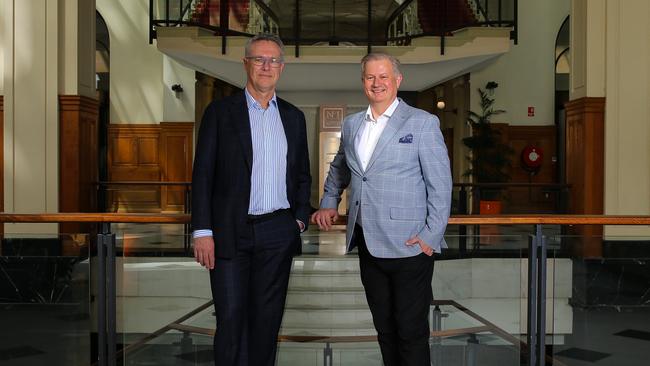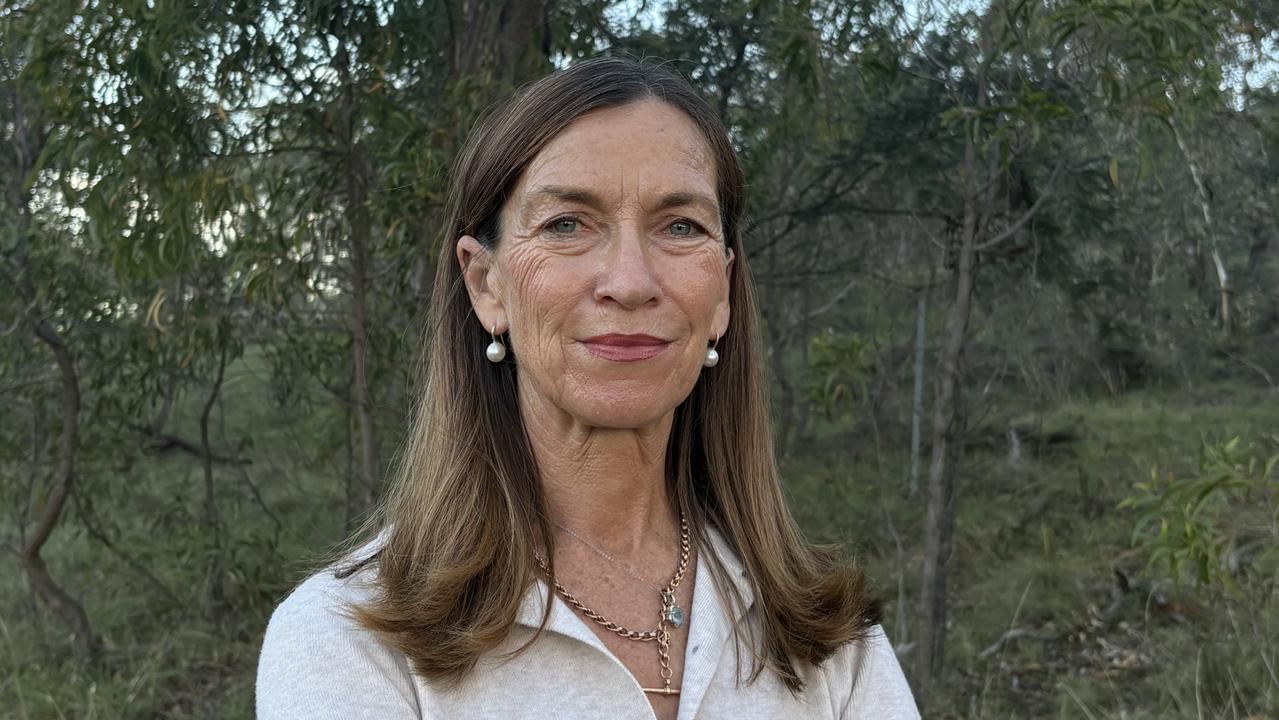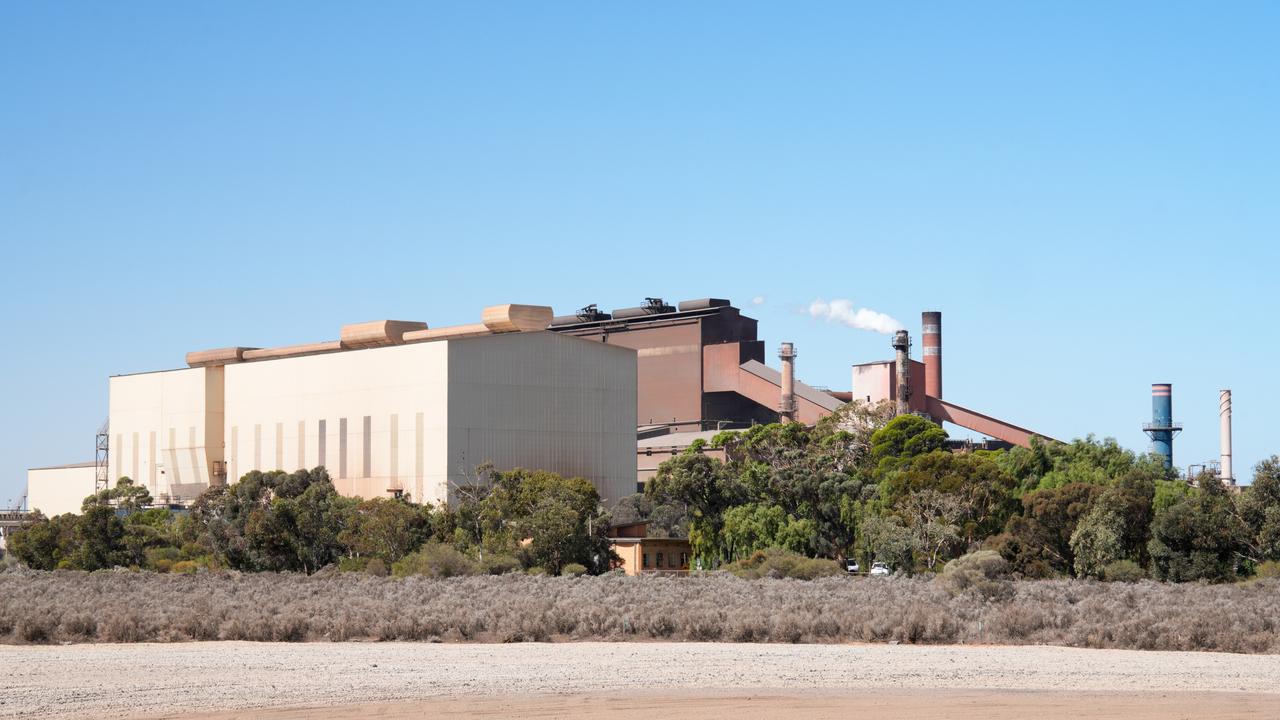Hagger, Debelle establish advisory firm to service the ultra wealthy
Andrew Hagger has joined with former Reserve Bank stalwart Guy Debelle to establish an advisory firm for ultra-wealthy families, as the number of Australian billionaires swells.

Former banker and Forrest family lieutenant Andrew Hagger has joined one-time Reserve Bank stalwart Guy Debelle to establish an advisory firm for ultra-wealthy families, wading into a highly competitive market as the number of billionaires swells.
Mr Hagger is on Wednesday launching Famille Capital, of which he is executive chairman, despite the firm operating behind the scenes for several months. The name of the firm draws on the French word for family, and it will operate across areas including deals, investments, advisory and life and legacy in things such as philanthropy and succession planning.
Famille Capital will in many ways compete with boutique private wealth and deal advisory firms that cater for ultra-high-net-worth individuals and families, but also large firms such as Morgan Stanley Wealth Management and LGT Crestone.
Mr Hagger stressed that the new firm was different, as it also sourced and advised on transactions such as acquisitions.
“We’re not a threat to the wealth management firms because we’re not running the money. We’re not a threat to family offices because we’re not trying to be anyone’s family office,” Mr Hagger said. “Rather, we’re a collaborative firm that is seeking to help principals get done what they wish to get done, as they look to add to their wealth and also add to their lifestyle.”
Mr Hagger – a former National Australia Bank executive – parted ways with Andrew and Nicola Forrest’s Tattarang and Minderoo Foundation about two years ago. While there, he helped oversee more than 30 deals, including the $190m acquisition of RM Williams boot company.
Dr Debelle, a former RBA deputy governor and former Fortescue Future Industries finance chief and non-executive director, will chair Famille Capital’s advisory panel. Dr Debelle and Mr Hagger have known each other for decades and studied economics together in Adelaide.
Famille Capital has already done four deals with four wealthy families but won’t disclose the participants. One was conducted in the consumer sector, the other in the technology, media and telecommunications industry.
However, Mr Hagger was adamant the new firm’s establishment was unrelated to the Forrest family.

“We’re not springboarding this firm off either the relationships or specific aspects of the Forrest family,” he said.
The Famille Capital advisory panel also counts former NAB executive Angie Mentis and Fairfax Family Office chief Jenny Wheatley among its ranks.
While the ultra-wealthy are often bombarded with investment ideas and advice, they are a growing cohort in Australia.
The Australian’s The List for 2024 showed the number of billionaires climbed to 159, from 139 last year. Total wealth swelled to $591.31bn in 2024, from $531.96bn the prior year.
Consulting firm Capgemini’s latest global wealth report put India and Australia among the best performers in the Asia-Pacific ranked on the growth rate of wealth for high-net-worth individuals and on the increase the number of wealthy individuals.
Despite inflationary pressures persisting within the economy and fragile business and consumer confidence, Dr Debelle said: “The macro vibe is actually not that bad … the outlook for the next while actually looks pretty reasonable and there are plenty of investment opportunities.”
He identified investment opportunities across private credit, artificial intelligence and the energy transition theme such as the development of new technologies and storage options. Dr Debelle thinks at least some of those new technologies will have the potential to deliver “outsized returns”.
“You’re looking across the generations, in which case the growth-oriented portfolio is going to be likely to meet their preferences more,” he said.
“The need for investment, both in the transition and obviously things like AI, it’s there pretty much regardless of the macro environment and in fact, the strong investment in those two sectors in particular, I think it’s going to underpin the macro environment, where it puts a fairly decent floor under it.
“Some of these more emerging (energy transition) technologies, which are further up the cost curve but potentially can move down quite rapidly, that’s where the opportunities are going to be.”
Mr Hagger even singled out the commercial property sector as a potential area of interest for the ultra-wealthy.
“Right now institutions are holding back on various types of commercial real estate in Sydney for example,” he said. “At some stage, those institutions will come back into playing when they feel the prices for them are right, but that creates an opportunity for families to proceed and buy at very attractive prices.”
Dr Debelle is an adviser to the investment committee of superannuation behemoth Australian Retirement Trust, while Mr Hagger has had a small role advising beleaguered pub baron Jon Adgemis and is also a backer of Blackwattle Investment Partners.
Asked about the potential for conflicts of interest, Mr Hagger said any outside interests would be “ringfenced” from Famille Capital.
Famille Capital has six staff based across Perth, Melbourne and Sydney. Among them is technology, media and telecommunications banker Alex Nikov, who joined from JPMorgan.
The Capgemini report found that ultra-wealthy individuals, defined as those investable assets of $US30m or more, on average had seven relationships with wealth managers, up from three in 2020.
However, the ultra-high net worth sector isn’t attractive to all financial services players. Commonwealth Bank is understood to be weighing a sale of its ultra-high net wealth division, as part of a broader review of the business.
Mr Hagger’s former employer NAB owns JBWere and also caters to wealthy customers through its private bank.
Mr Hagger expects philanthropic endeavours will also factor into Famille Capital’s work for wealthy families.
“Each family has their own views on philanthropy and what they wish to do, and the experience they wish to have in deploying capital in philanthropy, whether it be through impact investing or whether it be through philanthropic grants,” he said.



